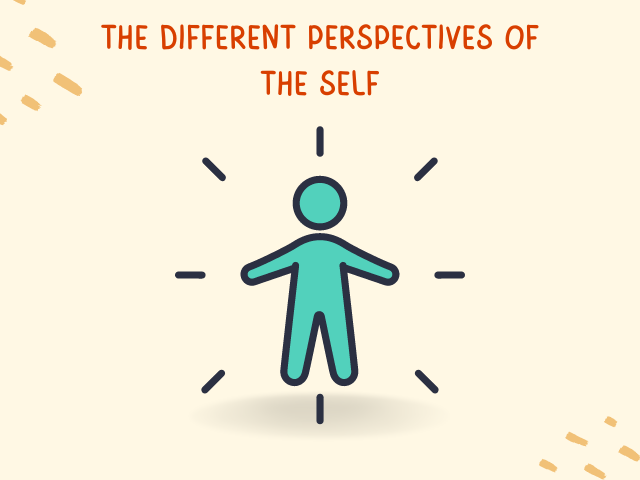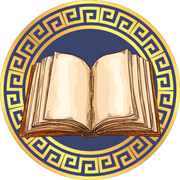What is the self? The Different Perspectives of the Self
What is the self? This article consists of the perspectives of philosophers and psychologists regarding the self, as well as my own.

What is the goal for this article?
The goal for this article is to share my perspective of what the self is, the self for me, consists of 3 aspects: The Body, The Mind, and The Soul (Not the Christian version of the soul). All three of these aspects will be explained further down below.
Before we proceed on discussing my perspective on what the self is, we must first have a short overview of the perspectives of philosophers and psychologists regarding the self; they are all respected in their field of expertise.
Table of Contents:
The Different Perspectives of the Self
Socrates’ perspective of the self
Socrates believed that the self is composed of the two aspects: The Body (The Physical Realm) and The Soul (The Ideal Realm).
The Physical Realm is imperfect and changeable, while the Ideal Realm is unchanging and immortal.
The body is merely a vessel for the soul; the soul, on the other hand, is the essence of humans' ability to think and will.
Socrates believes that we must be make our souls as good and beautiful as possible, for it is the only way to attain the good life.
The “good life” that Socrates keeps mentioning can be summed up into the acquisition of knowledge, wisdom, and virtue.
Our souls, Socrates claimed, strives for wisdom and perfection, but it is tied to the body in the physical realm where all is imperfect and changeable.
The only way for it to free itself is to acquire reason and wisdom. One of the effective way to acquire reason and wisdom is through self-examination.
The unexamined life is not worth living– Socrates
In Summary:
Socrates believes that the soul, the essence of a person's ability to think, is the real self.
The soul is trapped in the physical realm through the body, and the only way to free it is to acquire reason and wisdom.
Plato’s perspective of the self
Just like Socrates, Plato also beleives the real self is the soul. Plato however, believes that the soul is composed of three parts: Reason, Appetitive, and Spirited.
Reason is our rational part, it is the essence that enables us to think deeply, make wise decisions, and understating truths.
Appetitive is our biological needs such as: thirst, hunger, and sexual desire.
Spirited can refer to our passions, it includes basic emotions such as: love, anger, aggressiveness, empathy, etc.
Plato believes that we are Reason itself (our rational part) and that it is our responsibility to control and keep the other two parts of the self within our control.
He also warns us that those who are unable to keep their appetitive part and spirited part under control, the individual will experience personal, intellectual, and spiritual failure.
The first and greatest victory is to conquer yourself; to be conquered by yourself is all things most shameful and vile. – Plato
Aristotle’s perspective of the self
Very different from Socrates’ and Plato’s perspective of the self, Aristotle believes that the body and soul are not two separate elements but are one thing.
Aristotle believes that the soul is the essence of the self and that it dies along with the body.
Kinds of Soul:
- Vegetative Soul – it is responsible for Reproduction and Growth
- Sensitive Soul – it is responsible for Mobility and Sensation
- Rational Soul – it is responsible for Thought and Reflection
Similar to Socrates and Plato, Aristotle emphasized the importance of personal development and self-improvement, and believed that individuals have a responsibility to cultivate their own talents and virtues in order to achieve a state of personal excellence.
He believed that this could be achieved through a process of self-reflection and the cultivation of virtues such as courage, honesty, and wisdom.
The ultimate value of life depends upon awareness and the power of contemplation rather than upon mere survival. – Aristotle
Rene Descartes’ perspective of the self
Rene Descartes is regarded as the father of modern philosophy. His work had a significant impact on Western thought.
He believes that the self is consciousness. The self is being aware of yourself engaging in mental operations.
In simple terms, the self is the conciousness of one's mental operations.
Like Socrates, he sees the self as a immortal and independent of the body. He saw the self as a rational, autonomous agent capable of making free choices.
Rene argues that if an individual is not conscious of their own cognitive processes, then that individual has no self, because the self is dependent on the ability of being aware of your mental operations.
I think, therefore I am– Rene Descartes
John Locke’s perspective of the self
John believed that the self is composed of a bundle of experiences and ideas, which are constantly being added to and modified as we go through life.
In short, the self is our memories, our preserved consciousness.
He also believed that the mind is a blank slate at birth and that all knowledge and ideas are acquired through experience and is where the self is originated.
The self is not a fixed and unchanging substance, but a collection of experiences and memories. - Some Thoughts Concerning Education
My definition of the self
The self consists of 3 parts: The Body, The Mind, and The Soul.
The body is the vessel of the mind and soul; the mind holds the rational and emotional aspects of the self; and the soul reflects the sum of the individual’s past achievements and failures.
The greater the achievements, the greater the soul.
How significant are the 3 parts of the self?
The body is important because without it, the mind and soul cease to exist.
The mind is important because it is the machine that we use to problem solve, recall past events, and decide if an object, activity, or relationship is valuable.
The soul is important because it is the reflection of ourselves; it is what are character is.
These three parts of the self are interconnected; if one weakens, the other parts suffer in response.
What if the body is weak?
IF the body is weak, the mind weakens, and the soul damaged.
It is widely known that the health of the body also affects the mind.
An example of this would be a lack of sleep. Lack of sleep impairs the cognitive ability of the mind.
What if the Mind is weak?
IF the mind is weak, the body is susceptible to danger, and the soul weakens.
How do we define being weak-minded?
Having a weak mind can refer to being foolish or a state of being mentally and cognitively impaired.
What if the soul is weak?
IF the soul is weak, both the body and mind are limited, because, as mentioned before, the soul is a reflection of ourselves; it is the sum of our past achievements and failures.
And the lesser we view ourselves, the less we believe we can achieve victory in any aspect of life, and vice versa.
How do we improve ourselves?
Things that improve the body:
- Exercising;
- Proper Diet;
- Getting enough sleep
Things that improve the mind:
- Meditation;
- Painting;
- Coding;
- Playing an instrument;
- Self-examination; And
- Acquiring Wisdom through books, videos, podcasts, etc.
Ways to improve the soul:
- Minimize failures and setbacks;
- Achieving and completing goals;
- Do actions or activities that you deemed virtuous; And
- Not doing actions or activities that you deem to evil or immoral.
Copyright ©2023, ©2024 by Marshall Vulta
Last revised: September 4, 2024




Comments ()